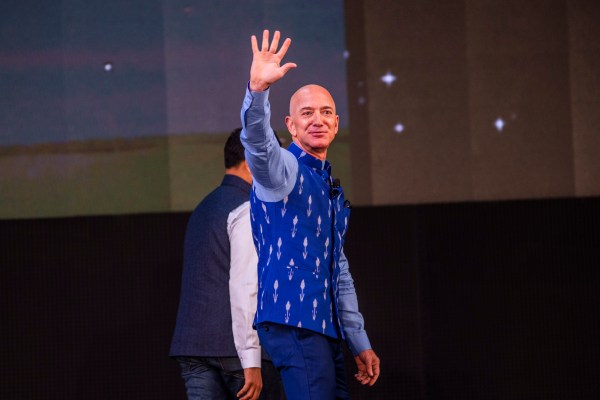Weeks after Uber exited India’s food delivery market, conceding defeat to local giants Swiggy and Zomato, a new player is gearing up to challenge the heavily-backed duopoly: Amazon.
The e-commerce giant plans to enter the Indian food delivery market in the coming weeks, a person familiar with the matter told TechCrunch. The launch of the service, which would be offered as part of either Amazon’s Prime Now or Amazon Fresh platform, could happen as soon as next month, we are told.
In the run up to the launch, the e-commerce giant has been testing its food delivery service with select restaurant partners in Bangalore, the source said, requesting anonymity as details of the new business are still private.
The company has been working on its food delivery business for several quarters and was previously aiming to launch it during the festival of Diwali. It’s unclear what caused the delay.
“We believe in innovating on behalf of our customers to create newer experiences for them. As part of this commitment, we are constantly evaluating new areas and opportunities to connect with and serve our customers. We will come back to you when we have something to announce,” an Amazon spokesperson told TechCrunch in a statement.
TechCrunch could not ascertain the kind of business agreement Amazon has formed with Indian restaurant partners — many of which have grown frustrated with online food delivery players.
Amazon’s foray into the food delivery market would create new challenges for Prosus Ventures-backed Swiggy, and Zomato, a 10-year-old startup that acquired Uber’s Eats business in India for about $180 million in January.
Both the startups, having raised more than $2 billion together, are still not profitable, losing more than $15 million each month to acquire new customers and sustain existing ones.
Anand Lunia, a VC at India Quotient, said in a recent podcast that the food delivery firms have little choice but to keep subsidizing the cost of food items on their platform as otherwise most of their customers can’t afford them.
Figuring out a path to profitability is especially challenging in India as unlike in the developed markets such as the U.S., where the value of each delivery item is about $33; in India, a similar item carries the price tag of $4, according to estimates by Bangalore-based research firm RedSeer.
Perhaps that explains why both Swiggy and Zomato have expanded beyond food delivery businesses in recent years. Swiggy today runs what it claims to be the largest cloud kitchen network in India, and has also expanded to delivery of just about any item (not just food). Zomato has been working on “Project Kisan,” to procure raw material directly from farmers and fishermen in an attempt to assume control of the supply of items to restaurants.
That’s not to say that it would be very easy for Amazon to scale its food delivery business in India. Swiggy alone operates in more than 520 cities in India and maintains partnership with over 160,000 partners.
Swiggy is adding 10,000 new partners to its platform each month, it said last week on the sidelines of its latest fundraise announcement. At stake is India’s food delivery market that was worth $4.2 billion as of the end of last year, according to RedSeer.
Amazon has established a dense delivery network in India through its own logistics chain and also through partnership with thousands of neighborhood stores.
The company’s move comes as Flipkart, its chief rival in India, is foraying into food retail business. Flipkart, which sold a majority stake in the company to Walmart for $16 billion last year, has registered an entity called “Flipkart Farmermart Pvt Ltd” that will focus on food retail, said Kalyan Krishnamurthy, Flipkart Group CEO, in a statement to TechCrunch in October.
The extended business for the Indian firm represents “an important part of our efforts to boost Indian agriculture as well as food processing industry in the country,” he said, adding that the company is already working with hundreds of thousands of small farmers for the business. Flipkart has already committed $258 million to the new venture. Last month, it piloted delivery of fresh fruits and vegetable, Indian newspaper Economic Times reported.
